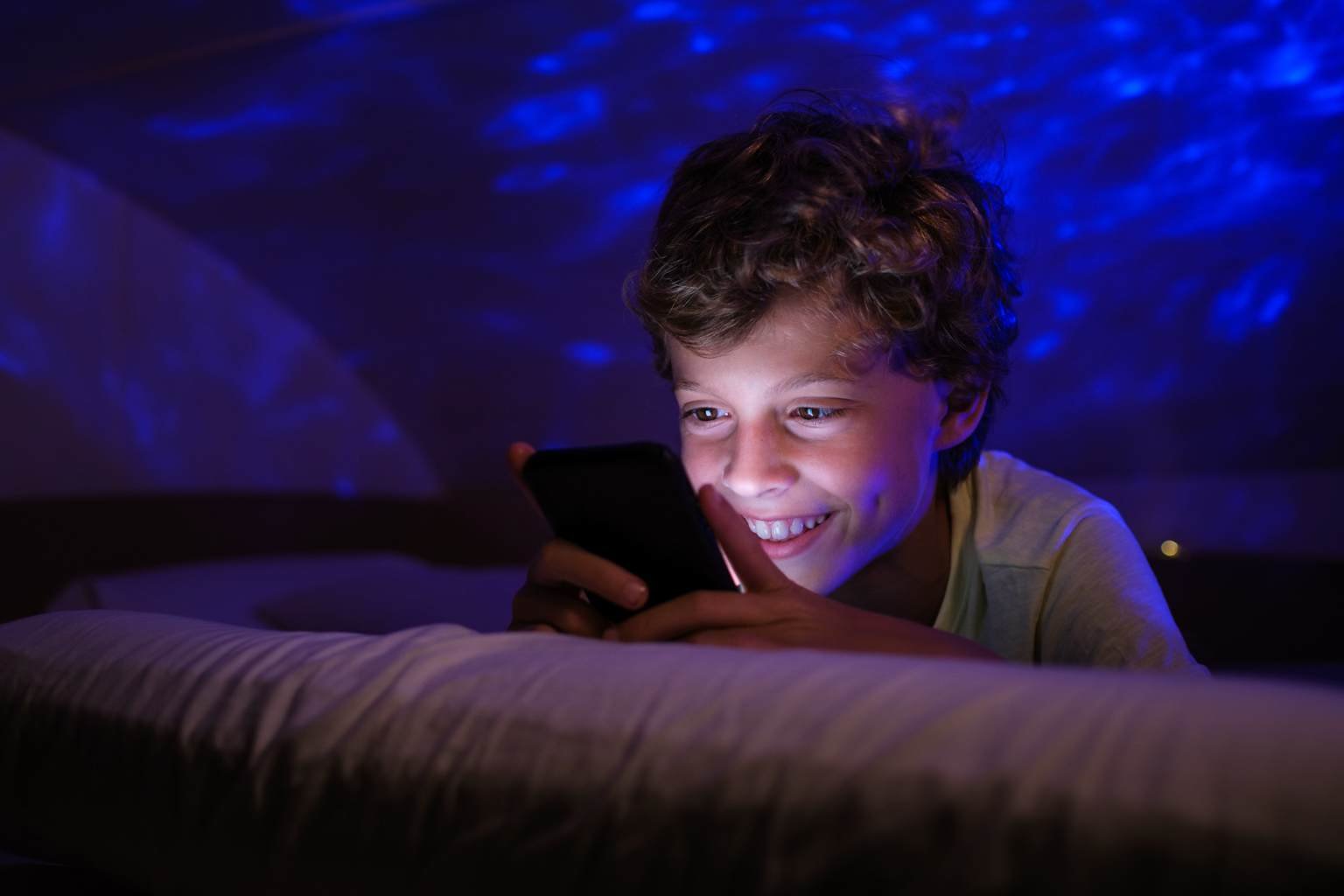We live in a digital world where screens are part of nearly every waking moment. From the instant we check our smartphones in the morning to the last scroll before bed, devices like smartphones, tablets, laptops, and televisions shape how we work, learn, connect, and relax. While this constant access to technology brings convenience and endless information, it also comes with a hidden cost, especially when it comes to the impact of blue light on our brains and sleep.
A growing body of scientific research warns that too much exposure to blue light, especially in the evening, can disrupt our natural biological rhythms, reduce the quality of our sleep, and even affect our long-term brain health. With screen time rising worldwide, understanding how blue light works and how to protect ourselves is more important than ever.
What is blue light?
Blue light is a type of high-energy, short-wavelength light that’s naturally found in sunlight. During the day, exposure to blue light from the sun is essential for regulating our circadian rhythm—the internal clock that tells us when to wake, eat, and sleep. Natural blue light boosts alertness, enhances mood, and improves cognitive function.
However, our environment has changed dramatically. Today, we’re exposed to blue light not just from the sun, but also from artificial sources like LED lighting, smartphones, computer screens, and TVs. While this is helpful for keeping us alert during the day, it becomes a problem at night when artificial blue light sends mixed signals to our brains, making it harder to wind down and fall asleep.
How blue light affects the brain
Your brain’s internal clock, housed in a region called the suprachiasmatic nucleus, is extremely sensitive to light. When blue light enters your eyes, it sends a powerful signal to the brain to suppress melatonin production. Melatonin is the hormone that helps you feel sleepy and prepares your body for rest.
Exposure to blue light in the evening delays the release of melatonin, keeping you alert at a time when your body should be winding down. This can make it difficult to fall asleep, shorten the overall amount of sleep you get, and reduce the restorative quality of your rest. Over time, the cumulative effects of poor sleep can influence your memory, mood regulation, immune system, and even weight control.
Sleep is a vital period when your brain consolidates memories, processes information, and clears out toxins. Chronic disruption from blue light can leave you feeling foggy, less able to focus, and more prone to stress and anxiety.
Scientific findings on screen time and sleep
Numerous studies have confirmed the negative impact of screen time before bed. For instance, research published in the journal Sleep Health found that people using screens within an hour of bedtime took longer to fall asleep, had more disrupted sleep, and reported feeling less rested in the morning.
Another landmark study from Harvard showed that even brief blue light exposure at night can shift the circadian rhythm by up to three hours. The impact is even greater in children and teenagers because their eyes absorb more blue light, and their brains are more susceptible to disruption. Excessive nighttime screen time in young people is linked to difficulty with attention, lower academic performance, and even behavioral changes.
Reducing the effects of blue light
Fortunately, you don’t need to eliminate screens from your life to protect your sleep and brain health. Try these simple, evidence-based strategies:
- Use blue light filters: Activate the “Night Shift,” “Night Mode,” or “Blue Light Filter” settings on your devices to reduce blue light emission in the evening.
- Wear blue light blocking glasses: Special glasses can filter out blue wavelengths, making late-night work or reading less disruptive to your sleep cycle.
- Establish a screen-free wind-down routine: Swap devices for activities like reading a paper book, gentle stretching, journaling, or listening to soothing music before bed.
- Limit screen time 1–2 hours before sleep: The earlier you unplug, the easier it will be to fall asleep and the better you’ll feel in the morning.
- Keep screens out of the bedroom: Designating your bedroom as a tech-free zone can dramatically improve your sleep quality.
Small changes can have a big impact. If your lifestyle makes it hard to avoid screens entirely, even reducing brightness and increasing text size can help minimize eye strain.
Beyond sleep: other effects of blue light
Scientists are still discovering all the ways blue light can affect us. Prolonged exposure may contribute to digital eye strain, leading to tired eyes, headaches, and blurred vision. There’s also concern about the potential for long-term retinal damage, although more research is needed in this area. Early findings suggest that managing screen time isn’t just about sleep, it’s a wise move for your overall neurological health.
People who spend long hours in front of screens, such as students, remote workers, or gamers, should be especially mindful of taking breaks, practicing the 20-20-20 rule (every 20 minutes, look at something 20 feet away for 20 seconds), and creating healthy boundaries with technology.
Final thoughts
Blue light is an essential part of our world, helping us stay alert and productive during the day. But when artificial blue light floods our evenings, it can throw our natural rhythms into disarray, making it harder to fall asleep, stay focused, and feel our best. By understanding how blue light works and being intentional with our screen use, especially in the hours leading up to bedtime, we can safeguard both our brain health and our sleep.
🧠 A brighter tomorrow starts with dimmer screens tonight. Give your brain the break it needs and let your natural sleep cycle work its magic.
